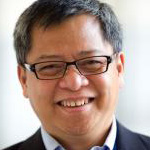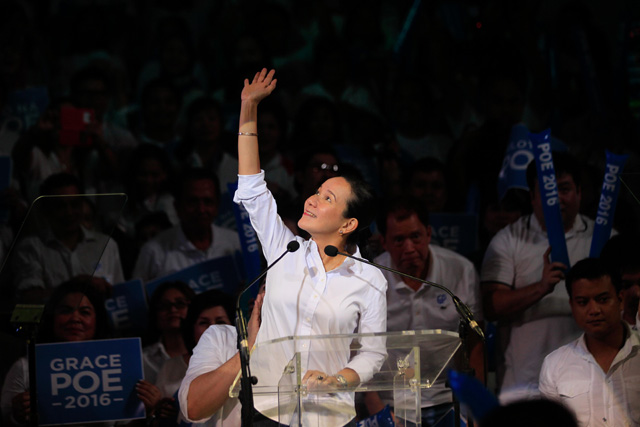 As the election fever heats up, and the contending coalitions gather support wherever they think this is available and feasible, observers always get drawn to the personalities rather than the party programs.
As the election fever heats up, and the contending coalitions gather support wherever they think this is available and feasible, observers always get drawn to the personalities rather than the party programs.
This is quite expected, given that our political culture gives premium to the individual as the prime determinant on how power is attained, legitimized, and protected. Oddly this kind of analysis applies to both the Left and the Right.
Hence, here you have a Marcos whose rise to power was iginuhit ng tadhana (fate); there you have a Santa Corazon who brought us out of the authoritarian darkness into the democratic light. Here you have "Professor" Nur Misuari leading the march to a Bangsamoro Eden, there you have “Professor” Joema Sison wielding the baton as he leads a dwindling communist population to the Pulang Silangan (Red East).
Of course, this is not unique to our system. This fetish for the individual is what drives American politics these days too. The days of the machine politicians (Howard Taft, Huey Long, the Daleys of Chicago) and of the patrician presidents (Theodore Roosevelt, Woodrow Wilson, Franklin Delano Roosevelt) are now faint memories. In their place is the ament Sarah Palin, the cretin Donald Trump and comrades Ted Cruz, Marc Rubio. And there are the political families: the Bushies and the Clintons.
How much the Plutonian world American politics has affected our own is a matter for scholars to resolve. For now it is enough to say that when it comes to personality-centered politics, hindi tayo nag-iisa (we are not alone)!
Poe and the presidency
Pushed to the margins, however, are those who want a smarter, much better explanation of the social forces behind our political games. These days, there is that need to explain the rise and popularity of Senator Grace Poe and her quest for the presidency. (READ: TIMELINE: Grace Poe's citizenship, residency)
A brief glance at what pundits, public intellectuals, and the professors have written about here exhibits a certain degree of crudeness. All that appears to matter for many is her national affiliations: did she renounce her American citizenship just in time to qualify for the presidential candidacy? A good number say she did not, making her ineligible to run.
She left the country, became an American, recited the Pledge of Allegiance, and lived there for a large portion of her life. Her mentality is American and in her soul, and so are her loyalties deep down. This is the spin that her critics have been putting out.
There is something disingenuous here, and it has to do with our schizophrenic view of elections. These commentators complain of how the elite manipulate elections and how, as a result, voting is not really an expression of the popular will. It is a circus where the botante are paid off by competing party operatives, depending on who offers the highest bid.

It is a spectacle where what matters most is how a candidate with a Sorbonne credential is good at hip-hop, or how the arthritic politico can sing like Bruno Mars. There is nothing to be had for any serious democrat in Philippine elections. The Filipino Ayatollah put it well when he described our parties as like Pepsi Cola and Coca Cola – hard to spot the difference.
So when Grace’s critics assail her for not being loyal to this national ritual and the post that she will hold if she wins, they are contradicting themselves with the message that voting is something sacred and serious. The people are trying to make fools out of us by making us believe that our ballot counts.
Double standard
The moral outrage over Grace’s political infidelity does not extend to their manok (bet), the Vice, the dead dictator’s son, and the icon of Daang Matuwid 2. With these characters, nuance is the operative term: yes he may be corrupt, but look at what Vice has done to Makati; the son should not inherit the sins of the father even he continues to defend the latter’s repressive and patrimonial regime; and the heir to the presidential throne should not be judged negatively because his professionalism and corporate life have mitigated his oligarchic pedigree.
However, if these critics think elections are nothing but games of the elite, and, because Grace the American is one of them, why insist that their manoks are the exemption from the norm? Why are the Vice, Bongbong or Mar made to look different from the spoils of men and women who dominate the circus? Why not add them to the pool of clowns that had now expanded to include Senator Poe?
Alas, here is double standard at its best. Elections are serious if it involves your manok; it is nothing but a spectacle when the centerpiece is Grace Poe.
But, voters can see through what these anti-Poe social forces are broadcasting. The surveys by the two most credible polling groups (Pulse Asia and the Social Weather Stations) suggest that these political groups will be unable to draw the people away from the Senator’s muted charm.
So they might accept these politicians' bribes, but I doubt if they will then march to the polling booth and write down the names of the Vice, Bong, or Mar. They will accept the money and vote Poe.
***
Steve Rood of Asia Foundation and someone whose work with the Bangsamoro I most admire, sent this nice note correcting my comments about Churchill and conservatism in the last piece. Steve wrote: “It is often wrongly ascribed to Churchill. The phrase originated with Francois Guisot (1787-1874): ‘Not to be a republican at twenty is proof of want of heart; to be one at thirty is proof of want of head.’ It was revived by French Premier Georges Clemenceau (1841-1929): ‘Not to be a socialist at twenty is proof of want of heart; to be one at thirty is proof of want of head.’” Thanks Steve.
***
Patricio Abinales is an OFW